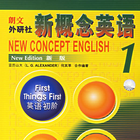
NCE1-L137L138
介绍: NCE1-Lesson 137 & Lesson 138
Part I New words and expressions 生词和短语
Lesson 137 Lesson 138
1 football ['futbɔ:l] n.足球
2 pool [pu:l] n.赌注
3 win [win] v.赢
4 world [wə:ld] n.世界
5 poor [puə] a.贫穷的
6 depend [di'pend] v.依靠(on)
1)football n. basketball / volleyball / table-tennis / Ping Pang...
介绍: NCE1-Lesson 137 & Lesson 138
Part I New words and expressions 生词和短语
Lesson 137 Lesson 138
1 football ['futbɔ:l] n.足球
2 pool [pu:l] n.赌注
3 win [win] v.赢
4 world [wə:ld] n.世界
5 poor [puə] a.贫穷的
6 depend [di'pend] v.依靠(on)
1)football n. basketball / volleyball / table-tennis / Ping Pang / tennis / baseball / golf / bowling / polo (马球) / eyeball / snowball
play football / play the piano
2)win vt. I win. A. 赢得比赛 I win the game. 打败某人 We beat them. They failed. I am the winner. They are the loser.
B. 赢得什么奖品 I win a lot of money.
3)world n. the whole world in the world in my world the big big world
4)depend v. depend on
Part II Passage 文章
Lesson137 A pleasant dream
June: Are you doing the football pools(赌注), Brian?
Brian: Yes, I’ve nearly finished, June. I’m sure we will win something this week.
June: You always say that, but we never win anything! What will you do if you win a lot of money?
Brian: If I win a lot of money , I shall buy you a mink coat.
June: I don’t want a mink coat! I want to see the world.(见世面)
Brian: All right. If we win a lot of money, we shall travel around the world and we shall stay at the best hotels. Then we shall return home and buy a big house in the country. We shall have a beautiful garden and…
June: But if we spend all that money we shall be poor again. What shall we do then?
Brian: If we spend all the money, we shall try and win the football pools again.
June: It’s a pleasant dream, but everything depends on “if”!
Part III Key structures关键句型
简单的条件状语从句 if
今天我们讲的是真实条件句。条件句分成两种:真实条件句和非真实条件句。所谓真实条件句,就是指将来可能会发生的事情,所以在主句中要用一般将来时;非真实条件句则又称作“虚拟条件句”,即所谓得“虚拟语气”,将会在新二当中有详细叙述。
公式: if + 条件从句(一般现在时态)+ 主句(一般将来时)
eg. If I gorw up, I will be a killer.
第1类条件句
如果我们认为将来的事件是可能发生的,就可用第1类条件句去描述将会发生什么事或不会发生什么事。其基本结构是:If + 一般现在时 + 将来时(或情态助动词),如:
If it rains tomorrow,we won’t go to the seaside.
如果明天下雨,我们就不去海边。
if从句中的现在时表示需具备的条件,主句中的shall/will将来时表示可能的结果。具备的条件是真实的,可能真的下雨.如果是这样,它就会有真实的结果。这就是为什么这样的陈述句常被称为“开放”条件句或“真实”条件句的原因。事实上,在第1类条件句中,一切现在时态都能用在if之后,而不仅仅是一般现在时。请看例句:
If he falls.he’ll hurt himself .
如果他摔倒了,他会伤着自己的。
If you don’t hurry,we’ll miss the train.
你要是不赶紧点儿,我们就会误了火车。
If you feel better,you can get up.
你要是感觉好些了的话,你就能起床了。
If I am better tomorrow,I will get up.
如果我明天感觉好些了,我就起床下地。
If I have a headache,I will take an aspirin .
我要是头疼的话就会服用一片阿司匹林。
If I can afford it,I will buy it.
要是我买得起的话我就会买它。
更多精彩尽请关注微信fhzxyy666
